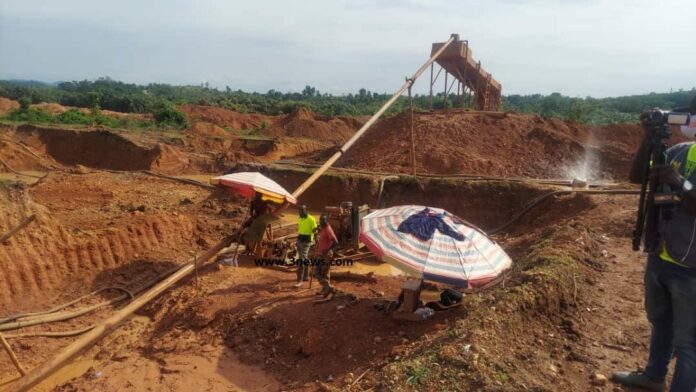Published
3 years agoon
By
GhMediaHub
Socio-environmental advocacy organization Friends of the Nation is urging the state to help deal with barriers to women’s participation in the legalized artisanal small-scale mining sector.
According to Friends of the Nation [FoN], legalized and environmentally sustaining small-scale mining operations in rural Ghana holds the prospect to elevate rural women out of poverty.
In a press statement to commemorate the International Women’s Day 2022, FoN enumerated cultural, social and other traditional norms that bars women’s participation in the sector.
“For example, it still remains a practice in the small-scale mining sector that women who are menstruating have had to forfeit their daily GH¢50 pay for all the days of their menstruation. This is because it is believed that a menstruating woman brings bad luck to the mining site in terms of gold output.
“If you decide to put cost to it, you would realize that each woman involved in small-scale mines losses some GH¢200 monthly, that is if you put the average menstruation days at four, and GH¢2400 annually,” Communications Officer of Friends of the Nation Obrempong Yaw Ampofo said when commenting on the statement.
He continued: “If you add that to the fact that there are some five thousand women in small-scale mining, you are looking at women in the sector losing some GH¢12, 000,000 annually to menstruation. This we at Friends of the Nation believes leaves much to be desired.”
Apart from this, the NGO says women who defy the odds to own mining concessions and actively participate in mining have had to deal with men who are not ready to work under a woman.
Nonetheless, “FoN and its partners have rolled out campaigns in the sector for the state to consider setting aside some 30 percent of blocked out areas for women miners in mining zones”.
These measures, according to the organization, are part of its contribution to empowering women in their areas of operation.
This covers “fisheries, small-scale mining, cocoa, grains and cereals farming, and the petroleum sector that highlights discriminatory practices that hinders women’s growth”.
“In the petroleum sector, FoN continues to support queen mothers in the Western and Volta regions to independently, and at times, jointly monitor with the Public Interest and Accountability Committee [PIAC] how Ghana’s oil revenues are used, and to present their voices on the best way the revenues can be used. Of another importance is the need for a deliberate policy that will ensure that women business owners in the Western Region are able to become vendors and suppliers on the list of oil companies operating in Ghana’s oil and gas sector,” the statement added.
Source: 3news
